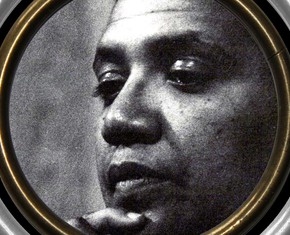The views expressed in our content reflect individual perspectives and do not represent the authoritative views of the Baha'i Faith.
Do you feel pressure in your life to pack in all the fun, all the experiences and all the Carpe Diem possible?
Today, many of us do. We feel that way now, in our hyper-busy, supercharged lives, because we have the consistently-reinforced perception that life is short and ends at death.
At least that’s the impression our materialist culture constantly pushes at us.
Think about it: the poet Horace coined the phrase Carpe Diem, and meant for it to foster a moderate, measured level of human happiness, by foregoing the extremes of high elation and deep sadness. Instead, we’ve turned Carpe Diem into motto for cultural consumerism—not just seize the day, but seize the pay. The message: you better live in the immediate here and now, because you’ll soon be old and then you won’t exist at all.
We’ve let consumerism turn Carpe Diem into one-click buying, shopping sprees and status symbols. We measure our worth by how much money we make and how much we spend. Rather than actually participating in real life, we watch an endless number of screens—phones, tablets, TVs, movie screens and huge advertising billboards—and let 24/7 digital entertainment, sports and mass distraction turn us into watchers rather than doers.
Even the mindfulness movement, generally a good thing, has succumbed to this kind of “do it immediately” thinking by emphasizing breathing, living for the moment and promoting a “You Are Fully Present Right Now” philosophy.
These kinds of approaches to life may pay immediate dividends in the present, but in doing so they deny the importance of the future. They trade the eternal for the temporary and the temporal.
Instead, the Baha’i teachings ask us to contemplate the lives of the animals—and to make sure that our lives as human beings go beyond the merely mammalian level of satisfying our immediate needs:
What are the animals’ propensities? To eat, drink, wander about and sleep. The thoughts, the minds of the animals are confined to these. They are captives in the bonds of these desires. Man becomes a prisoner and slave to them when his ultimate desire is no higher than his welfare in this world of the senses. Consider how difficult for man is the attainment of pleasures and happiness in this mortal world. How easy it is for the animal. Look upon the fields and flowers, prairies, streams, forests and mountains. The grazing animals, the birds of the air, the fishes neither toil nor undergo hardships; they sow not, nor are they concerned about the reaping; they have no anxiety about business or politics—no trouble or worry whatsoever. All the fields and grasses, all the meadows of fruits and grains, all the mountain slopes and streams of salubrious water belong to them. They do not labor for their livelihood and happiness because everything is provided and made possible for them. If the life of man be confined to this physical, material outlook, the animal’s life is a hundred times better, easier and more productive of comfort and contentment. The animal is nobler, more serene and confident because each hour is free from anxiety and worriment; but man, restless and dissatisfied, runs from morn till eve, sailing the seas, diving beneath them in submarines, flying aloft in airplanes, delving into the lowest strata of the earth to obtain his livelihood—all with the greatest difficulty, anxiety and unrest. Therefore, in this respect the animal is nobler, more serene, poised and confident. Consider the birds in the forest and jungle: how they build their nests high in the swaying treetops, build them with the utmost skill and beauty—swinging, rocking in the morning breezes, drinking the pure, sweet water, enjoying the most enchanting views as they fly here and there high overhead, singing joyously—all without labor, free from worry, care and forebodings. If man’s life be confined to the elemental, physical world of enjoyment, one lark is nobler, more admirable than all humanity because its livelihood is prepared, its condition complete, its accomplishment perfect and natural.
But the life of man is not so restricted; it is divine, eternal, not mortal and sensual. For him a spiritual existence and livelihood is prepared and ordained in the divine creative plan. His life is intended to be a life of spiritual enjoyment to which the animal can never attain. This enjoyment depends upon the acquisition of heavenly virtues. The sublimity of man is his attainment of the knowledge of God. The bliss of man is the acquiring of heavenly bestowals, which descend upon him in the outflow of the bounty of God. The happiness of man is in the fragrance of the love of God. This is the highest pinnacle of attainment in the human world. How preferable to the animal and its hopeless kingdom!
Therefore, consider how base a nature it reveals in man that, notwithstanding the favors showered upon him by God, he should lower himself into the animal sphere, be wholly occupied with material needs, attached to this mortal realm, imagining that the greatest happiness is to attain wealth in this world. How purposeless! How debased is such a nature! God has created man in order that he may be a dove of the Kingdom, a heavenly candle, a recipient of eternal life. God has created man in order that he may be resuscitated through the breaths of the Holy Spirit and become the light of the world. How debased the soul which can find enjoyment in this darkness, occupied with itself, the captive of self and passion, wallowing in the mire of the material world! How degraded is such a nature! What an ignorance this is! What a blindness! How glorious the station of man who has partaken of the heavenly food and built the temple of his everlasting residence in the world of heaven! – Abdu’l-Baha, The Promulgation of Universal Peace, pp. 183-185.
When we begin to understand and know that our lives go on forever, seizing the day for all the pleasure we can wring from it starts to seem self-serving and somehow short-sighted. If eternity beckons, if the promise of an everlasting life is real, then every human being should plan for the long-term rather than expend all their energies in the short-term, right?
We’ll consider that question in the next essay in this series—please join us.
















Comments
Sign in or create an account
Continue with Googleor